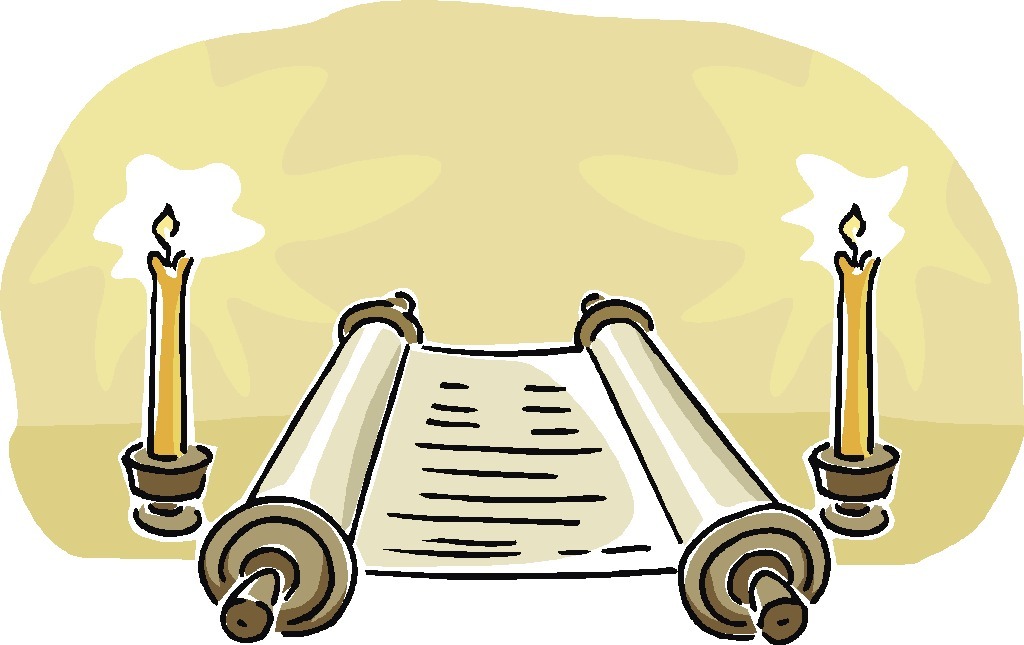
Deuteronomy 3
Deuteronomy 3:22, Must fear them. Know Elohim, No Fear; No Elohim, Know Fear.The Scriptures reveal an interesting, and counter-intuitive spiritual principle that humans have a hard time wrapping their heads and hearts around. It is this: When we fear Elohim, we will not fear our enemies, and we will be blessed by Elohim. When we do not fear Elohim, we will fear and be tormented by our enemies and we will not be blessed by Elohim (Ps 34:9; Acts 9:31).

What is it to fear Elohim? It is to walk in the wisdom of his commandments or his loving instructions in righteousness (Deut 10:12). Rebellious humans have a hard time doing this, since their sin nature is opposed to submitting to YHVH legal instructions (Jer 17:9; Rom 8:7).
Once, however, one gets their sin nature under control with the help of Yeshua, and one begins to love and fear Elohim by keeping his commandments, suddenly the physical things they once feared no longer have any hold on their hearts and minds.
Having defeated the greatest enemy of all—one’s sin nature—with Elohim’s help effectively empowers and emboldens the saint. He no longer fears what other people think about him because, in the long run, all that matters is what Elohim thinks. He no longer is concerned about his future physical needs and well-being because Elohim promises to take care of us when we trust and obey him. He no longer fears those who attack and persecute him, because he knows that with Elohim’s help, he can overcome any enemy.
Deuteronomy 3:23, Pleaded with YHVH. YHVH forbids Moses from fulfilling his life-long dream of entering the Promised Land. What was Moses’ repsonse? Did he cry, pout and pitch a fit, or did he accept YHVH’s will for his life? What can we learn from this? Do you have so much love for and faith in YHVH that you would be willing to let go of your greatest dream—even your life on the altar of faith and trust in YHVH and obey him no matter the outcome? Though YHVH were to slay you, will you like Job still love and trust him (Job 13:15)? If your entire life was devastated, you lost all your money, the land was desolate and your life become a desert, would you like Habukkuk still praise YHVH (Hab 3:17–19)? Selah.
Deuteronomy 4

Deuteronomy 4:2, You shall not add to the word that I command you, nor shall you subtract/diminish from it. YHVH warns his people against adding or subtracting from his written word elsewhere as well (Deut 12:32; Rev 22:18–19). Men seem inclined to ignore YHVH’s command in this regard. In fact, whole religions have been founded based on disregarding this prohibition. Some claim to be Bible-based (e.g. Mormonism with their Book of Mormon and rabbinic Judaism with its Talmud), and some have supplanted the entire Bible with their own book (Islam with its Quran). This doesn’t even include the numerous unbiblical traditions and man-made doctrines that many traditional churches and denominations have constructed out of whole cloth and patched into the teachings of the Bible. This cannot be pleasing to Elohim!
Who is the author of and real power behind adding to and subtracting from or twisting YHVH’s Word? It is Satan the serpent. (See Gen 3:1ff and Matt 4:3ff.) Make no mistake, adding or subtracting from the Word of Elohim is to fall for the lie that the devil told the first humans at the tree of knowledge that the Word of Elohim can be molded and formed to fit men’s ways of thinking instead of Elohim’s.
What did Yeshua warn the religionists of his day against in this regard? He said, “Thus have you made the commandment of Elohim of none effect by your tradition” (Matt 15:6) and, “Howbeit in vain they do worship me, teaching for doctrines the commandments of men” (Mark 7:7). What are some examples of traditions and theologies in the modern-day Christian and Jewish religions where YHVH’s word has been superseded by man’s traditions? What are some traditions and doctrines of men you have turned away from in order to bring yourself into greater alignment with YHVH’s Word? How is your life better for it? What has been the reaction of those around you in response to your aligning your life more closely with the truth of YHVH?
Finally, the Bible ends with a warning to those who would add to the word of Elohim.
For I testify to everyone who hears the words of the prophecy of this book: If anyone adds to these things, Elohim will add to him the plagues that are written in this book; and if anyone takes away from the words of the book of this prophecy, Elohim shall take away his part from the Book of Life, from the holy city, and from the things which are written in this book. (Rev 22:18–19)
When this passage says “this book,” which book is it talking about? The book of Revelation or the entire Bible? To err on the side of caution, it is prudent to assume that John is referring to the whole Bible, since Revelation is the last book of the Bible. Why do I assume this? Simply because I personally do not care to experiences any of Elohim’s curses; life is already difficult enough as it is!

Deuteronomy 4:2, Observe the commandments of YHVH. The word observe (RNA/shin-mem-resh)is a common Hebrew verb meaning “to keep, guard, give heed, watch, protect, have charge of.”In its noun-form, shamar means “a watchman.” According to The TWOT, the basic meaning of shamar is “to exercise great care over something.” One of the most frequent uses of this verb in Scripture is how it is used in this verse. YHVH commands his people to shamar his Torah-commandments some 30 times in the Torah alone. What does this mean to you? Are you learning to not only “hear,” but “to do” his commands (the Hebrew word shema)? How has your life changed and what are the resulting blessings? Though YHVH clearly commands his people “to keep” or “to guard,” what is commonly taught in most Christian churches in regard to “the law”?
Deuteronomy 4:6, Keep. Keeping Torah (YHVH’s instructions in righteousness) was the means for YHVH’s chosen people to be salt and light to the surrounding nations. Torah is literally a “witnessing tool.” What kind of righteous witness are you (via your Torah lifestyle) to those around you who are lost in spiritual darkness?
Wisdom [Heb. chokmah] and understanding [Heb. biynah]. What is the biblical definition of wisdom and understanding? Let’s explore this subject to see what we can learn from the word of Elohim.
Chokmah means “intelligence, skill (in war); wisdom (in administration); shrewdness, wisdom; prudence (in religious affairs); wisdom (ethical and religious). It derives from the verb chakam meaning “to be wise, to be or become wise, act wisely; to make wise, teach wisdom, instruct; to show oneself wise, deceive, show one’s wisdom.” According to The TWOT, chokmah and its root verb represents a manner of thinking and attitude concerning life’s experiences including matters of general interest and basic morality. These concerns relate to prudence in secular affairs, skills in the arts, moral sensitivity, and experience in the ways of YHVH. In the Tanakh, chokmah is used in relationship to the whole gamut of human experiences whether it be technical artisan skills, military tactics or political and administrative leadership. It is expressed in shrewdness as opposed to foolishness or silliness. Prudence is another aspect of chokmah as it relates to how one speaks, uses his time carefully and in the practical affairs of life. The Bible reveals that Elohim is the source of all wisdom, and wisdom is not to be found in human speculation. Elohim alone provides wisdom for man’s guidance, so that he can live the best possible moral and ethical life (ibid.).
Biynah means “discernment or insight” or “the ability to understand something, comprehension, the power of abstract thought, an individual’s perception or judgment of a situation.” According to The TWOT, biynah refers to knowledge that is superior to the mere gathering of data. It is necessary to know how to use the knowledge one possesses, and this is where biynah or perception and judgment comes into play. One must properly interpret the data and make wise and discerning decisions as to how to act.
Torah is your wisdom in the sight of the nations. Consider the following:
- Your life may be the only Bible some people read.
- Torah is light. Light quietly does, it is silent. It doesn’t talk about doing, it does! YHVH is looking for doers, not talkers.
- What kind of reputation do you have in the community?
- People may not be turning to the light of Torah as a result of your example YET, when times get tough in this country (“when you are in tribulation … in the latter days, Deut 4:30), they may well turn to you for the answers because they remembered that there was something different about you—something pure, pristine and holy. That’s when they’ll be looking for answers.
- Torah makes us a great people. YHVH measures greatness differently than the world does. Are you great by the world’s standards or YHVH’s standards?
- How does YHVH measure greatness? Love, faith, truth, obedience, servanthood, giving, selflessness, self-sacrifice.
- Comparatively speaking, how does the world measure greatness? Money, power, fame, possessions, intellect, physical appearance, good sounding words.
- Which type of greatness will last into eternity?
Never forget this: The Bible reveals that Yeshua the Messiah is the spiritual light of the world (John 8:12) that came from heaven to guide men through the spiritual darkness of this world and lead them to his Father in heaven (John 1:7–9). He is not only the Light, but the Word of Elohim made flesh (John 1:1, 14). In other words, he is the Living Torah Word of Elohim. He was the exemplification and personification of the Written Torah. Only through him living in us via is Set-Apart Spirit can we properly obey YHVH’s Torah commandments (note 1 Cor 9:21 where the saint is “under/in/subject to the Torah-law toward Messiah”). This we will do by his divine power in us and out of a loving relationship with him (Jer 31:31–33 cp. Heb 8:10; John 14:15; 1 John 2:2–6; 3:24; 5:2–3; Rom 13:8–10). The Testimony of Yeshua makes these truths very clear for those who have eyes to see, ears to hear and hearts to comprehend! The rewards and blessings are incomprehensibly awesome for those who walk according to the instructions of Elohim.
“And behold, I am coming quickly, and My reward is with Me, to give to every one according to his work. I am the Alpha and the Omega, the Beginning and the End, the First and the Last.” Blessed are those who do His commandments, that they may have the right to the tree of life, and may enter through the gates into the city. (Rev 22:12–14)
Deuteronomy 4 :9, Keep you soul diligently lest you forget.

- Don’t forget the awesome things that YHVH has done for you: the miracles, the answered prayers, the healing, the joy and hope that he gave you when there was no way out, delivering you from your enemies, setting you free.
- Remembering the past miracles—keeping your testimony strong and alive of the great things YHVH has done for you—keeps your faith alive in the reality of WHO HE IS and in his very existence
- Remembering will keep you from falling away when the times get tough, when the doubts come, when the voice of the lying enemy comes knocking on the door of your heart and mind to lead you astray.
Deuteronomy 4 :15, Take careful heed.
Let’s explore the warning in this passage about the perils of idolatry and its consequences (Deut 4:15) and not seeking after the gods of the people’s around us (Deut 6:14).
- What about idolatry in your life?
- What takes precedence over your love and devotion for YHVH?
- Do you spend the time in worship and prayer that you should? What idols edge their way in to interfere with your relationship with YHVH?
- YHVH is a consuming fire and is jealous over you. (Deut 4:24)


Nicely written, טוב מאד / Tov meod (very good)… good and faithful servant.
Add to the congregation, not to the Word of Elohim.
Blessings, John